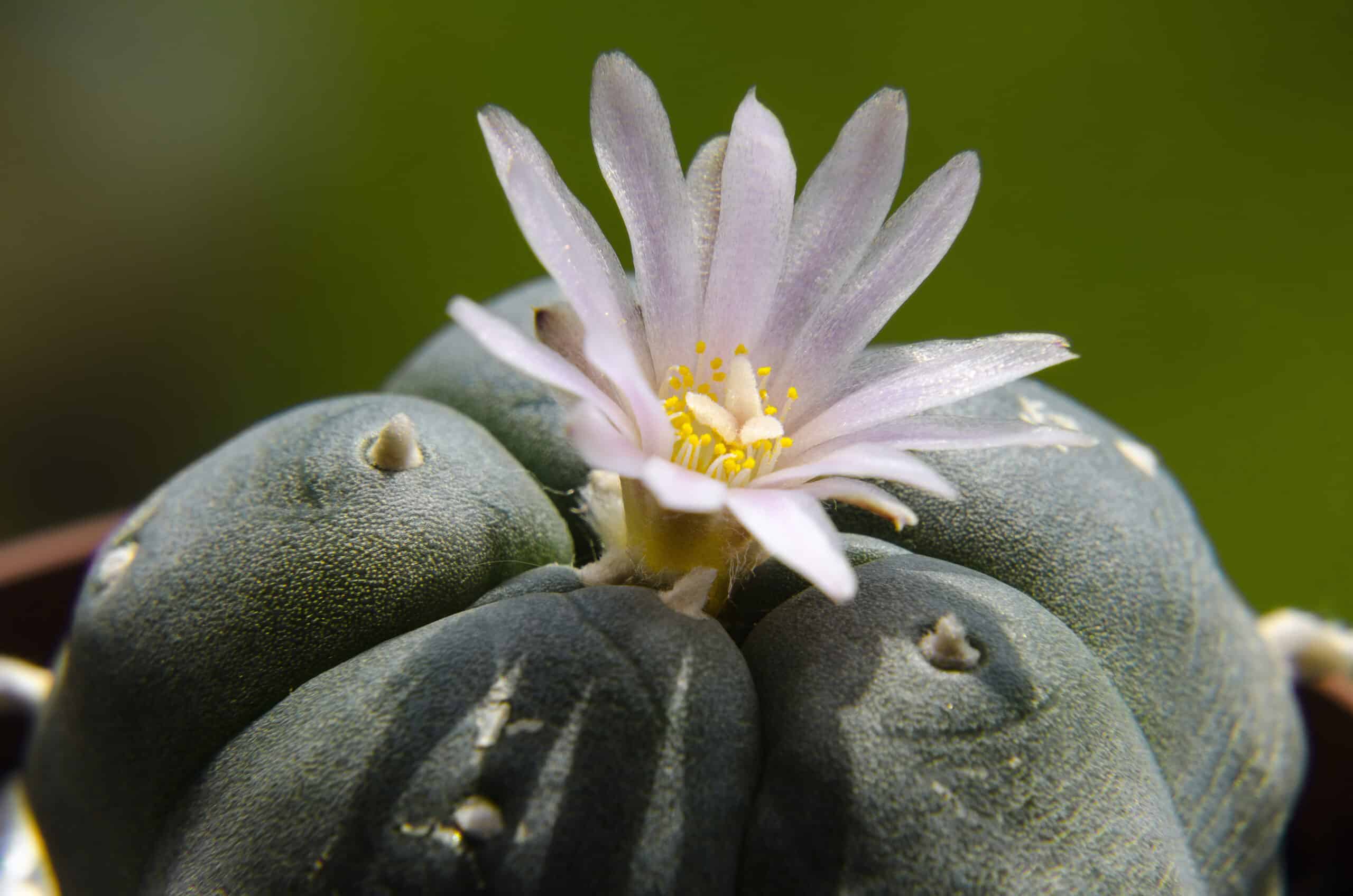Psychedelics are having a moment, as researchers, startups, and regulators are recognizing the potential of these previously stigmatized compounds for treating mental health disorders. Amid this current rush of activity, mescaline has, so far, made hardly a ripple. However, it is now being evaluated in clinical trials that could reveal its prospects for the future.
Mescaline, which is found in the peyote cactus and the San Pedro cactus, has been used in cultural rites for at least 5,000 years. It was first synthesized in 1919 and studied in clinical trials in Germany in the 1920s. Like psilocybin, mescaline is generally considered safe and not addictive. Unlike psilocybin and LSD, mescaline is a phenethylamine, a group of substances that includes MDMA (also known as ecstasy), amphetamines, and other drugs. Mescaline achieves its mind-altering effects primarily through the 5-HT2A receptor, which is usually triggered by the neurotransmitter serotonin.
Results of an online survey of 452 self-selected mescaline users suggest that the drug may have value for psychiatric improvement. Among the respondents who had depression, anxiety, post-traumatic stress disorder (PTSD), or drug use disorder, two-thirds reported improvements in their conditions following their “most memorable” mescaline experience, even though very few of the participants took the drug with that explicit intention.
Slower Acting, Longer Lasting?
Mescaline has a slow onset of action with subjective effects lasting eight hours or more. This means that treatments would require long monitoring sessions with healthcare providers. Psilocybin’s duration is slightly shorter, at four to six hours.
However, shorter is not necessarily better when it comes to the durability of effects. Clinical research demonstrates a correlation between a psychoactive drug’s acute subjective effects and the duration of its therapeutic effects. For instance, ketamine’s acute effects typically last for less than two hours and its benefits have been shown to last for about a week, whereas ibogaine’s effects can last for days and its effects in countering heroin addiction could potentially last for more than a year.
Research in mice has shown that psychedelic dosing can lead to a period of heightened learning abilities that can last for weeks. These periods may contribute to psychedelics’ abilities to dramatically improve symptoms of depression, addiction, PTSD, and other conditions. If so, longer-acting drugs such as mescaline might prove more effective than faster-acting alternatives in countering firmly established memories and addictions.
The slower action of mescaline could also be beneficial for people who might be overwhelmed by the rapid high brought on by psilocybin and LSD, says Peter Hendricks, a clinical psychologist and addiction researcher at the University of Alabama at Birmingham. He suggests that slower onset could help users “surrender” to the psychedelic experience and provide greater therapeutic benefit as a result.
Potential Drawbacks
Compared to other well-known psychedelics, mescaline has the lowest consciousness-altering potency, at about 5 percent of the level of psilocybin. This feature adds a layer of difficulty to drug development, since it means a higher dose is necessary to elicit the desired subjective effects.
In addition, a notable disadvantage of mescaline is that, for unknown reasons, it can trigger nausea and vomiting. Drug makers hope to minimize this side effect by creating modified mescaline and mescaline analogs and by adjusting dosage guidelines. Psilocybin and some other psychedelics can also induce nausea, but the risk is much lower.
Making Mescaline Marketable
The first modern clinical trial of mescaline is underway at the University Hospital in Basel, Switzerland with 30 healthy participants. It is designed to compare the effects of the drug with those of LSD and psilocybin. The same researchers are also conducting a mescaline dosing study with 16 participants, with both studies planned to end in mid-2023.
While these studies are primarily academic in nature, mescaline is also in the startup pipeline. California-based Journey Colab’s JOUR-5700, a synthesized form of mescaline, is being developed to treat alcohol use disorder and the company plans to launch an ascending-dose study in the next year. The company stresses the need for wraparound therapy and support including psychological rehabilitation that continues as long as needed after administration.
Two Canadian companies are developing mescaline-based drugs. A drug from Toronto-based Biomind Labs targets inflammation, which is associated with several types of depression. A clinical trial to evaluate the drug will be conducted by the Albert Einstein Israelite Hospital in São Paulo, Brazil. The other, Vancouver-based XPhyto Therapeutics, has announced plans for a Phase I clinical trial to study a mescaline-based treatment, formulated to minimize nausea, for a broad range of mental health conditions.
Regardless of the role that mescaline and other psychedelics ultimately play in treating mental health disorders, the renewed interest in these once-taboo drugs is increasing the flow of potential new treatment options at a time of significant unmet need.
Did you enjoy this blog post? Check out our other blog posts as well as related topics on our Webinar page.
QPS is a GLP- and GCP-compliant contract research organization (CRO) delivering the highest grade of discovery, preclinical and clinical drug research development services. Since 1995, it has grown from a tiny bioanalysis shop to a full-service CRO with 1,100+ employees in the U.S., Europe and Asia. Today, QPS offers expanded pharmaceutical contract R&D services with special expertise in neuropharmacology, DMPK, toxicology, bioanalysis, translational medicine and clinical development. An award-winning leader focused on bioanalytics and clinical trials, QPS is known for proven quality standards, technical expertise, a flexible approach to research, client satisfaction and turnkey laboratories and facilities. Through continual enhancements in capacities and resources, QPS stands tall in its commitment to delivering superior quality, skilled performance and trusted service to its valued customers. For more information, visit www.qps.com or email info@qps.com.








